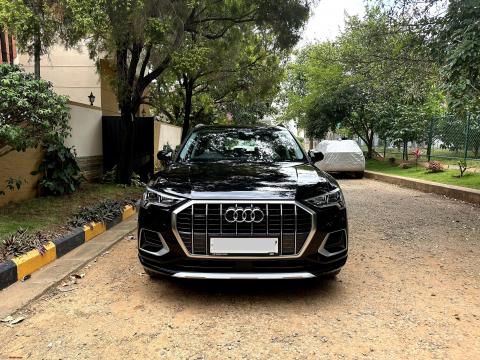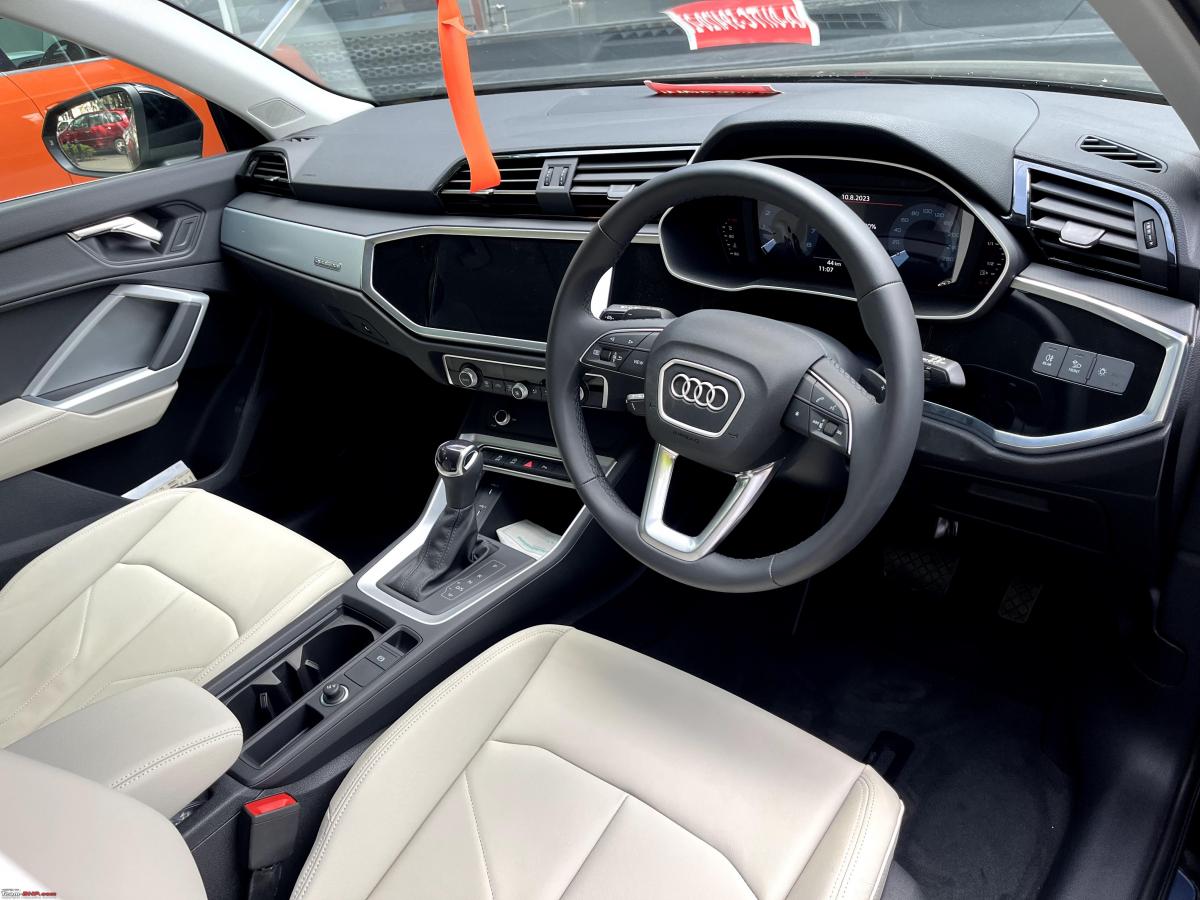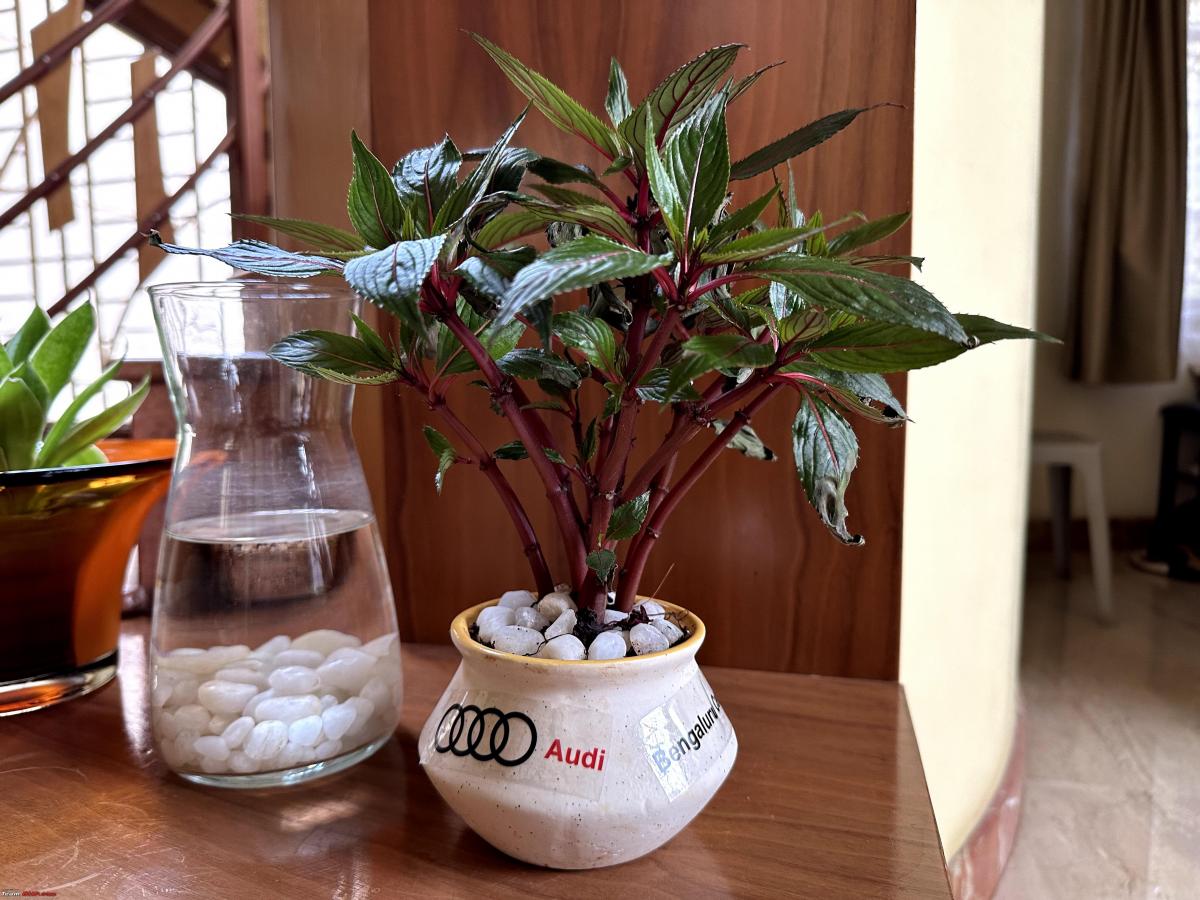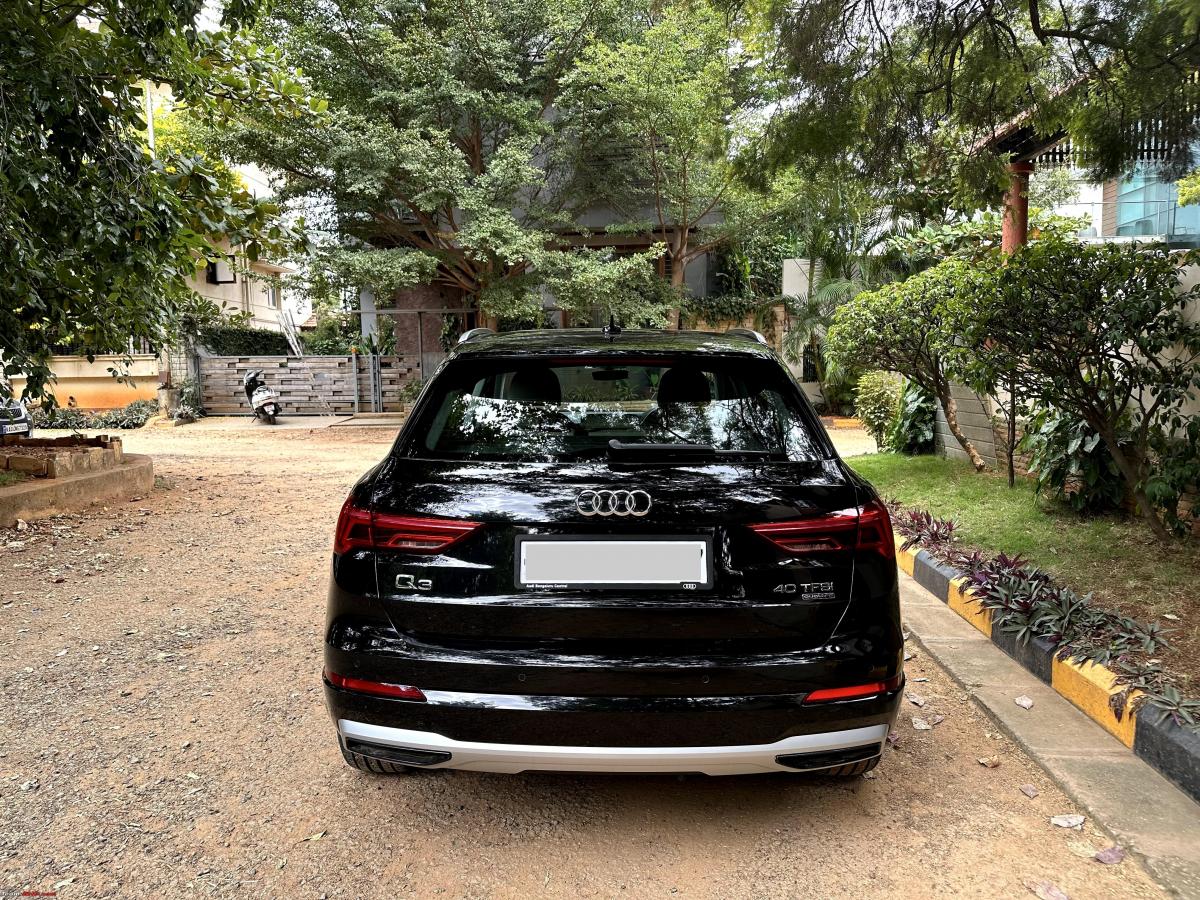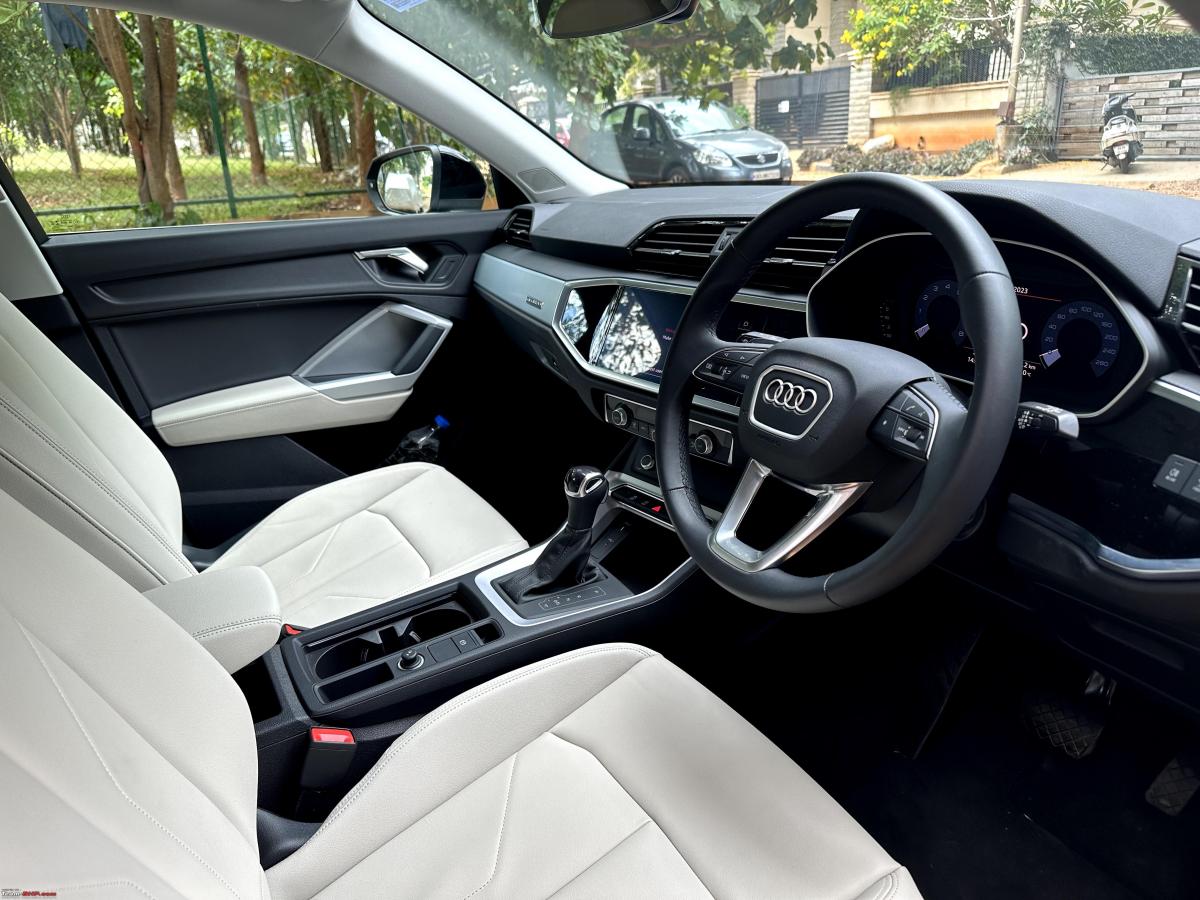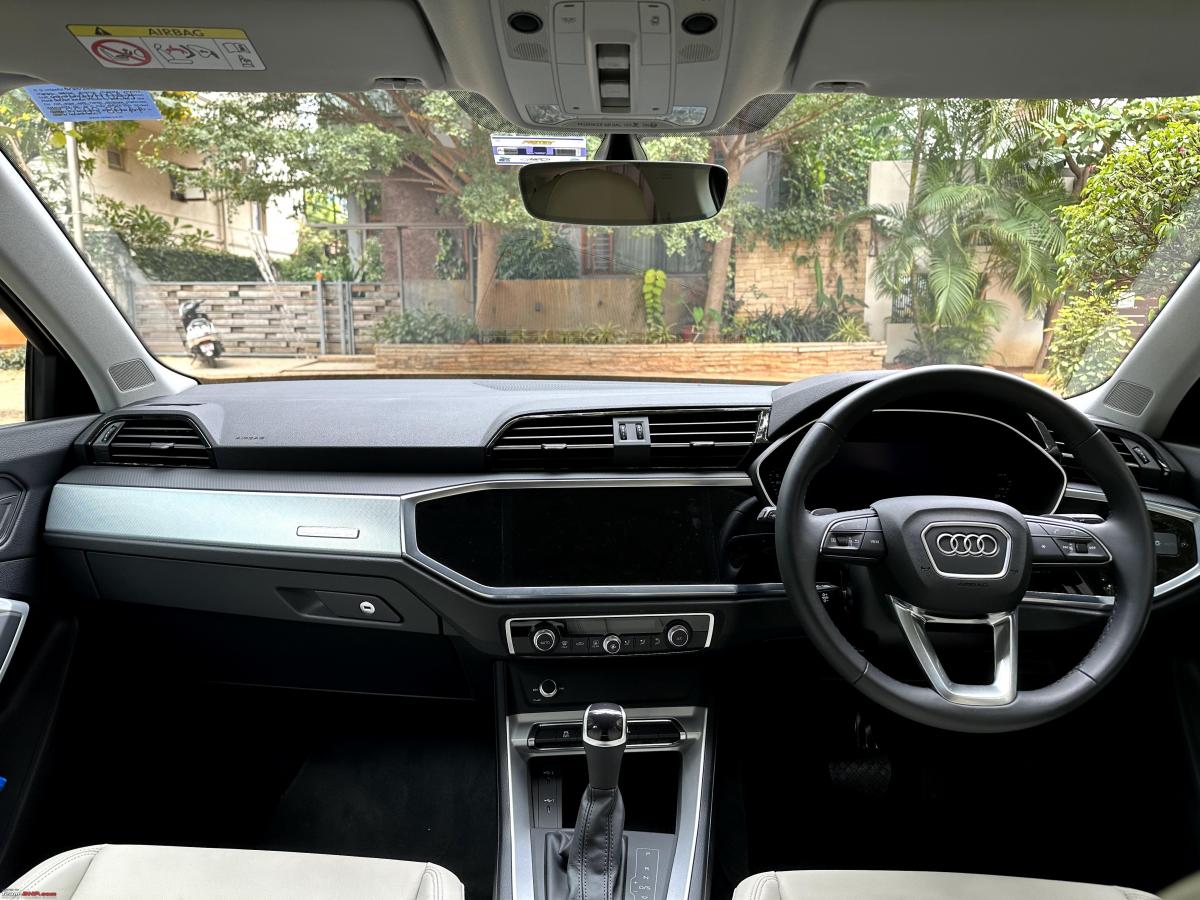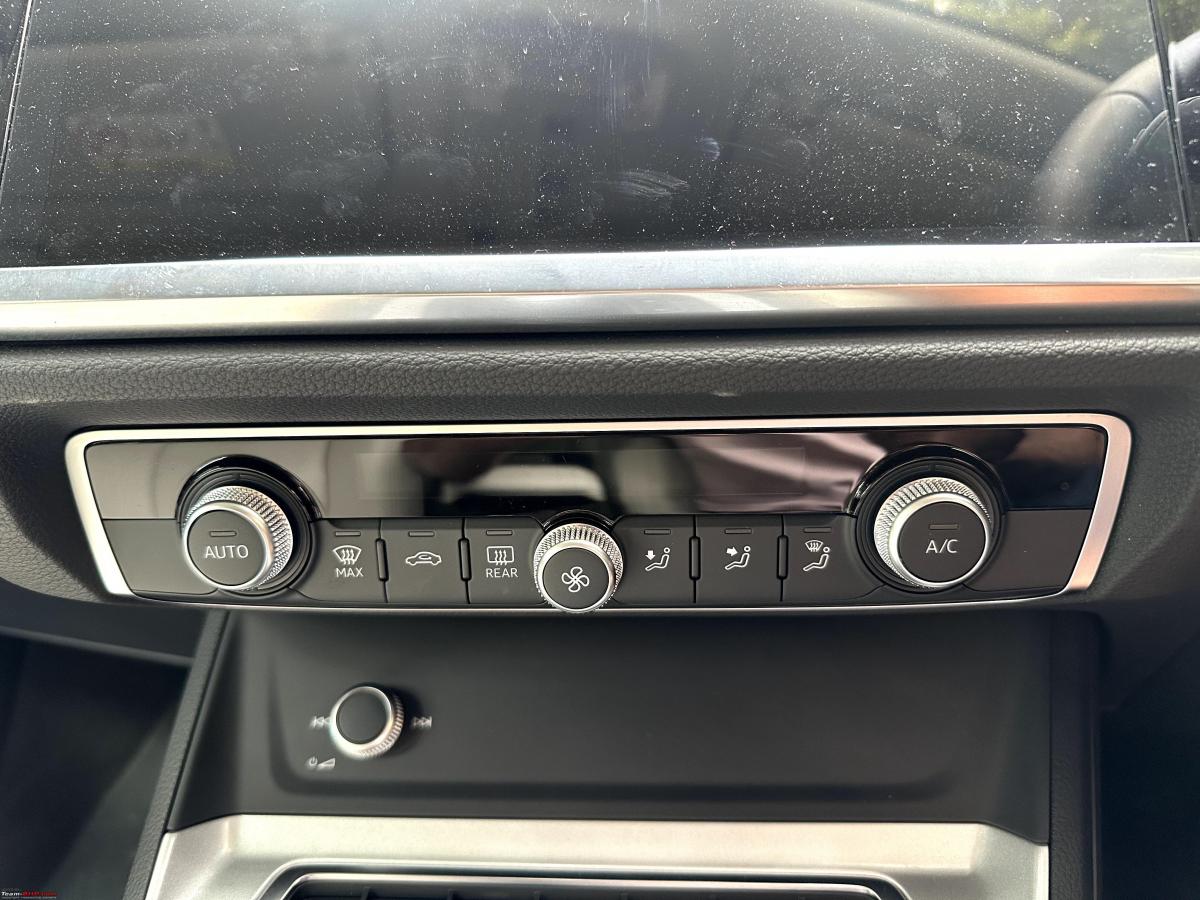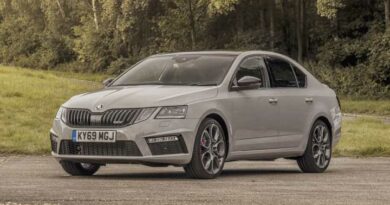Upgraded from a Kia Seltos to the 2023 Audi Q3: Initial impressions
The Technology variant was at a premium of 6-7L which we felt was not worth the price and hence decided to go with the Premium Plus variant.
BHPian aditya9567 recently shared this with other enthusiasts.
Intro
We recently purchased a new Audi Q3 after a few months of deliberation and research. I thought I’d post a short review of our experience and the car to aid anyone thinking of purchasing a car in the segment. Given that the official review is comprehensive, I am going to limit this review to my observations and aspects specific to the Premium Plus variant for the sake of brevity with my general laziness not playing any part in the decision.
Likes
- Audi’s Physical Health and Back to Basics package exclusive to the Premium Plus variant that I will detail out later. The Physical Health Limited package is applicable to the Indian Q3 in general, again detailed out later.
- A lovely price tag because who doesn’t like to see big numbers on a cheque.
- Special “Bring Back to Ground” feature through some interior plastic quality that gains more power the lower you go in the interior. The feature works in conjunction with the price tag and is designed to keep you close to Earth just in case you start to fly high after buying a luxury car.
- The powertrain helps form a brotherhood with owners of multiple cars below and above the segment.
- Provides continued ambition to earn and perform better in life to keep up with the expected maintenance costs.
Dislikes
- Driving experience – the 2L TFSI engine is too quick for Indian roads. Gentle dabs of the throttle increases speed faster than you can say “Oh no”, very dangerous.
- The sorted dynamics of the car add to the frustration as you reach the next jam or the next traffic light sooner.
- The gearbox needs a special mention as the car is most likely going to go through 2 of them but more so because of its disturbing ability to read your right foot better than a palmist can read your right hand.
- Solid build quality throughout that makes you feel you worked out more while closing doors or the boot. The car doesn’t give rattles (not yet at least) to enhance your hearing and scouting ability.
- On a scale of Alfa to Porsche, the car probably scores a BMW on build quality.
- Noise insulation and the refined experience makes you feel disconnected from the lovely music on our roads.
- Discontent from one of the leading professionals in the auto industry because of all the unnecessary extra safety equipment when we all know 4 doors is enough to protect individuals from outside harm.
Background
The new car replaces a 2020 Kia Seltos. While in the past, we have kept cars for a long time, the Seltos was sold after a short period on concerns of safety. We probably would not have bought the Seltos initially if the GNCAP ratings were out then but better late than never.
Primary requirements from the car are a medium sized crossover offering a good driving experience and premium interiors. An important factor was also the size and the turning radius for ease of maneuverability. The usage is around 15-20k km a year roughly split 60:40 city to highway. The car is primarily used by my parents.
A serious search for a new car began when the Tiguan was updated in June with refreshed interiors. The continually increasing prices were another factor that hastened our decision.
Alternatives considered
VW Tiguan: The Tiguan was perfect on paper – premium crossover, practical, loaded with features, excellent powertrain and dynamics. The driving experience was pretty good, very similar to the Q3 but the interior quality and the design did not feel up to the mark. The SA was also interested in selling the Taigun more than the Tiguan.
Skoda Kodiaq: Excellent interiors with different materials, pleasing design and loaded with useful features. The only fly in the ointment was the size and the large turning radius. If the Kodiaq’s interiors were on the Tiguan, we would have probably gone for that.
Hyundai Tucson: The Tucson was a big surprise. The interior quality and design felt very modern and well put together. The car feels very spacious inside, thanks in part to the gray interior colour. The powertrain, however, is not as good as the VAG cars. The petrol is uninspiring while the diesel is punchy but has a bit of a lag. Transmission isn’t as well tuned either. It is a practical crossover and would have been more of a head purchase rather than a heart purchase.
Volvo XC 40: Ever since the XC 40 came out a few years ago, I have loved the design direction the company has taken from the V40 to their sedan series. The cabin was well put together and the car was properly modern compared to its German rivals offering the latest tech (ignoring their real world applications in India). The engine felt sprightly but boomy inside. Upshifts and downshifts took a tad longer than the Audi dual clutch. The biggest gripe is with the back seats, they are upright and have low thigh support. The rear seats do not have any adjustments. My guess is that Volvo designed the car to be both a petrol and EV variant and they had to make certain compromises to fit the battery pack under the seats.
Ioniq 5: The major reason for considering this car was the price and the running costs. The Ioniq 5, due to the road tax exemption, offered more car per rupee. We could have probably overlooked the nascent charging infrastructure but it ultimately did not feel like a crossover which was an important requirement.
Mercedes GLA and BMW X1: The new GLA significantly improves on the practicality and interior space from the previous gen but still did not feel sufficient. More importantly, the cost was the deciding factor with MB not offering any discounts. We would have to go for the diesel costing around 62L on road Bangalore (the petrol option is not worth the price IMO), which would have stretched the budget considerably. The X1 was rejected due to the powertrain options.
Booking and delivery experience
Once we narrowed down to the Q3 and initiated serious discussions, we found the SA to be highly amenable to negotiation. After a few rounds, the list price and the actual offered price were poles apart. The SA also offered around 10% further discount on an MY23 CBU that they had received earlier in the year. The CBU missed out on dynamic indicators compared to the CKD. The CBU was a no brainer, in my opinion at least. The Technology variant was at a premium of 6-7L which we felt was not worth the price and hence decided to go with the Premium Plus variant. Audi also sells a Premium variant, on order, but its even more watered down with fabric seats, halogen indicators and rear lights.
The deal included a 3 year comprehensive service pack and 3 years extended warranty (5 year warranty in total). We were allowed to do a PDI at the showroom after which the booking amount was paid. The car had 44km on the odo during the PDI. Other formalities were done soon after.
Pictures during the PDI.
The delivery experience was standard fare, with a cake cutting, an unveiling and handing over of the key. What was surprising was the Rs 10k in freebies that we received which included 5k in fuel as the car was 80-90% filled up.
The remaining 5k is largely notional from this Audi branded pot. I know the plant probably doesn’t cost that much, but the pot is premium as it is widely accepted that slapping a premium badge on everyday objects like water bottles, ties, caps etc. increases its value by atleast 20x.
It was a smooth experience throughout. The SA was fairly new and was not 100% adept with the car and brand’s specifics but was very responsive and good to deal with.
Exterior
I’ve always liked how the Q3 looks. The new generation modernizes the car while retaining the design aesthetic. The newer gen features cleaner lines compared to the curvy design of the older gen. It is, however, instantly recognizable as a Q3.
There is no visual difference from the outside between the PP and the Technology variant. The official review covers this in detail, so I will limit myself to a few shots.
Handsome front face with the Audi family hexagonal grille.
A nice side profile with a sloping roof design towards the latter half of the car. The silhouette is not as raked as the Sportback but is instantly noticeable when compared to something like the Seltos which has more of a boxy shape. While the rear headroom is not compromised, the feeling of space in the boot is reduced. The alloy design is fairly bland, the international version gets much better looking wheels.
The rear 3/4ths shot highlights the SUV/crossover look that the car is going for.
Pleasing rear design. Distinctive LED tail lights look great. The fake dual exhausts give cars a real performance vibe said, no one ever. I could’ve done without them to be honest.
Interior
The interior has a nice look. I quite like Audi designs with its clean understated lines and relative minimalism. I believe that this will age better than something like the Tucson’s design. Overall interior quality is on par with soft touch materials on the dash but harder plastics lower down.
I have observed that newer generations of cars have lower quality materials in general across manufacturers. Materials used in this Q3 do not feel as premium as the previous gen.
The beige colour seats lift the ambiance aided by the panoramic sunroof. Both front and rear seats are comfortable with adequate thigh support. The front seats also provide lumbar support which is welcome.
Overall practicality is good with sufficient leg room in the back thanks to the increased wheelbase over the previous gen. The boot capacity of 530 litres should also cater to most of our needs.
The cockpit is tilted towards the driver to provide easy access to the infotainment screen. The ergonomics are spot on with all controls falling easily to hand.
This portion of the dash looks even more plain without the start stop button. Thankfully it retains buttons and knobs to control essential functions. The switchgear feels tactile and premium.
Well designed centre console. The cupholders have ambient light strips which look good at night.
A unique way to switch on the interior lights – just touch them. A clever feature that is frequently missed is the ability to change the intensity of the lights which can be done by continuing to touch the light till the desired intensity is reached. This works on the rear cabin lights as well.
The interior is where the majority of the difference is between the trim levels. On the face of it, it appears as though the Premium Plus misses essential features but dig deeper and you’ll find that Audi’s Physical Fitness and Back to Basics Pack actually provide more value in the long run.
Continue reading BHPian aditya9567’s review of his 2023 Q3 for more insights and information.
Source: Read Full Article
